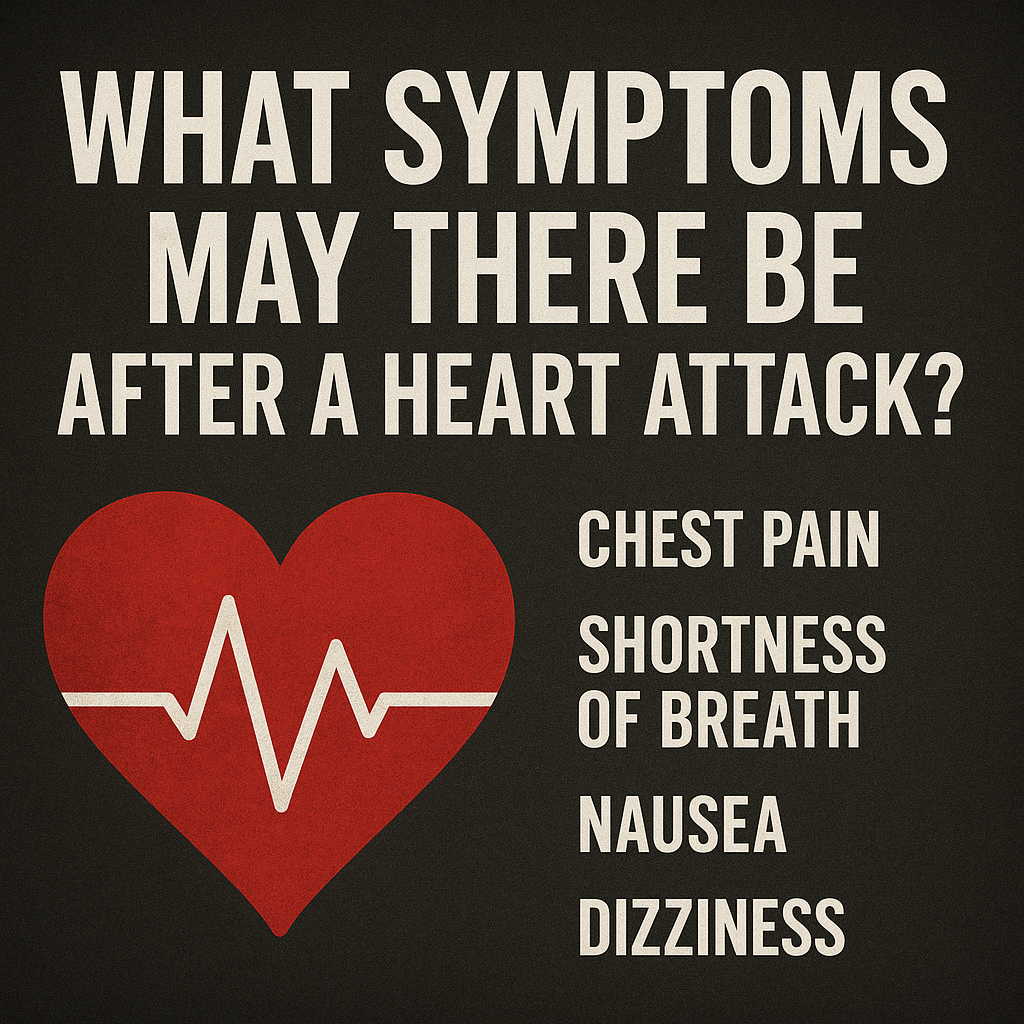Most patients are free of major symptoms after a heart attack, but
some complaints are quite common: Angina
Angina is a discomfort in the chest due to insufficient blood reaching
the heart muscle. It is situated mainly in the centre of the chest but may be
felt on either side of it or in the arms and jaw. It is usually a tight or heavy
feeling which is provoked by exercise or emotion, but can occur at rest.
Many heart attack patients have experienced this previously and they are
more likely to have it again than those who have never had it before. Angina
is evidence that there is still a narrowed artery supplying blood to heart
muscle. It can usually be treated with medicines, but it may sometimes be
necessary to resort to angioplasty or coronary surgery (see below).
Breathlessness
Shortness of breath is quite common during the recovery period after a
heart attack. Most often this is due to being out of condition. If this is the
case, with a slowly progressive exercise programme it will gradually get
better. If it does not improve the breathlessness may be caused by the poor
pumping action of the damaged heart (“heart failure”). This requires
treatment with drugs, such as diuretics, digitalis or the so-called ACE
inhibitors.
Tiredness and Fatigue
These symptoms are very common after a heart attack, but they are
more likely to be due to being out of condition or to psychological problems
(anxiety or depression) than to the heart itself. They may also be due to
drug treatment – especially beta-blockers.
Palpitation
Patients may become uncomfortably aware of the action of the heart,
particularly when they are lying on their left side in bed. Occasional
thumps or dropped beats can be alarming sometimes it feels as if the heart has stopped for a few seconds but they are harmless. On the other hand,
prolonged attacks of racing of the heart require medical treatment.
Faintness and Fainting
People who have been in bed for a while often feel faint when they
first stand up particularly if they are very warm, as after a hot bath. The
circulation has got out of condition and there is a danger of fainting if one
does not sit or lie down promptly. Sudden loss of consciousness under other
circumstances (especially when the subject is already lying or sitting) needs
to be taken seriously after a heart attack, and may require investigations into
the rhythm of the heart. It can sometimes be due to such drugs as glyceryl
trinitrate, beta-blockers and ACE inhibitors (see below).
